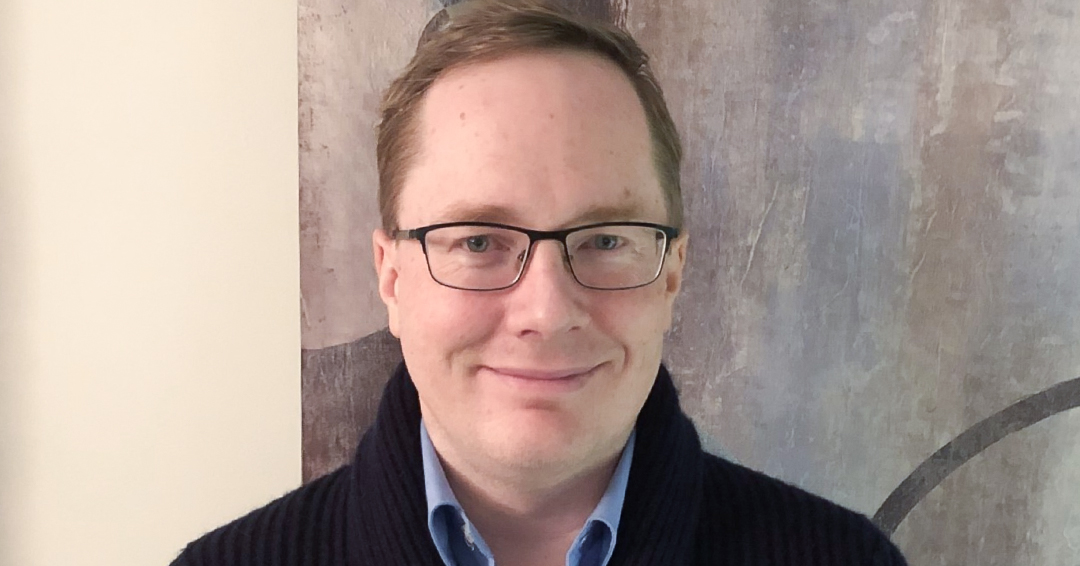
David Luckow, MD, is a family physician at the Montreal West Island CIUSSS’s youth mental health clinic. He is the Director of the Transition to Clinical Practice Component in the Undergraduate Medical Education program as well as a clinical lecturer at McGill University’s Department of Family medicine. He recently set up a new addictions medicine program at the Douglas Mental Health University Institute and, as a certified Medical Review Officer, provides drug-test reviewing services and independent medical evaluations. Until recently, he was also the head physician at the Centre de réadaptation en dépendance de Montréal, a public drug and alcohol rehabilitation centre
Montrealer David Luckow has a fascinating vocation. As an addiction specialist, he meets with people from all walks of life struggling with a dependance and helps them on their journey to recovery. While Family Medicine may not have been his original plan, his calling to help people struggling steered him down this path. His non-judgmental approach to caring for his patients is nothing short of inspiring, as he continues to educate around this important disease.
In Canada, the most common substance-based addictions are tobacco, alcohol, and cannabis. Over fifteen per cent of the population have used cannabis over the past year and, on average, 3 out of 10 users go on to develop cannabis use disorder. In 2018, cannabis became legal in all provinces and territories for those 18 years old and over, making Canada just the second country to legalize recreational use of the drug. Since then, Dr. Luckow notes that more Canadians seem to be using cannabis.
ʺThe legalization has made cannabis more available and therefore its usage more prevalent. There is now this notion that cannabis is OK, it is not that bad for you, ʺ says Dr. Luckow. ʺAs a medical doctor, I can say that there are significant health consequences when you take cannabis. It is a serious drug, and the risks are damaging, especially when it comes to addiction.”
Addicts are suffering with a disease
Individuals dealing with addiction problems are often seen as self-sabotaging and society has not typically been very sympathetic towards them. Addicts have therefore been largely stigmatised because of the misconception that they are choosing to harm themselves. Unfortunately, this stigma makes it even harder for individuals to heal from their disease.
ʺPeople with addiction are suffering with a physiological disease that overtakes their body. The reward pathway gets hijacked, and numbness of pain occurs through habits that they cannot control, ʺ explains Dr. Luckow. ʺWhen you are addicted, your body craves the substance and cannot wait for the next usage. It becomes a compulsion. ʺ
Dr. Luckow likens addiction to survival skills like eating and reproducing, which we are all accustomed to. ʺEven after recovery, the disease always stays with you. The molecular lock and key system does not change, which is why a return to occasional use after stopping makes a relapse almost inevitable, ʺ notes Dr. Luckow.
We all have coping mechanisms
The pandemic has shown that we all have our safety nets when it comes to dealing with stress, social isolation and fatigue. We all turn to our own coping mechanisms to make us feel better, whether it’s eating chocolate brownies, scrolling through social media or smoking a cigarette. “Stress avoidance is normal, we all want to feel good and avoid stress, ʺ says Dr. Luckow. “In essence, we are all wired the same because it’s nature’s way of protecting us.”
When we think of addicts, we tend to think of extreme cases, of those attending Alcoholics Anonymous meetings or ending up on the streets. An addiction, however, can also be more “socially acceptable” in the sense that it is not life-threatening but still life-impacting. “Cyberdependance is on the rise among the younger generation, ʺ notes Dr. Luckow. ʺOf youth seeking help, the average usage is 55 hours per week. This is a process addiction, similar to gambling, to which there are formal treatment programs that are available.”
When asked whether there are certain addictions that are easier to treat than others, Dr. Luckow responds thoughtfully: “the one that you have is the hardest to treat.”
Dr. Luckow’s mission, whether in a rehabilitation centre or a university class, is clearly about ending the stigma around addiction and building bridges between vulnerable communities and the health sector. His presence both as the first line of contact for patients and in long-term treatment plans demonstrates the extent to which his work is making a real impact in people’s lives. Keep up the great work Dr. Luckow!
If you would like more information, feel free to reach Dr. Luckow via email or LinkedIn.

